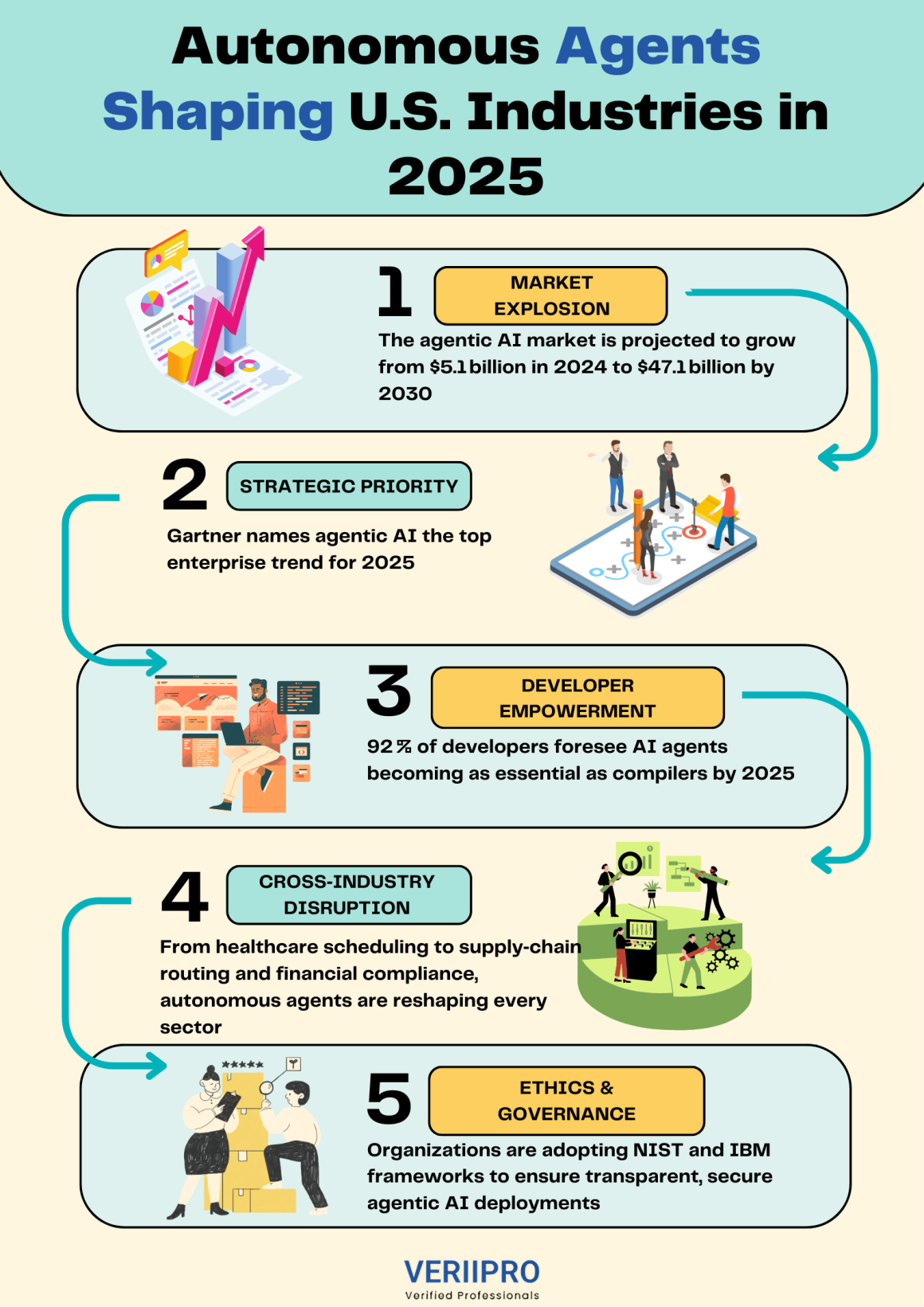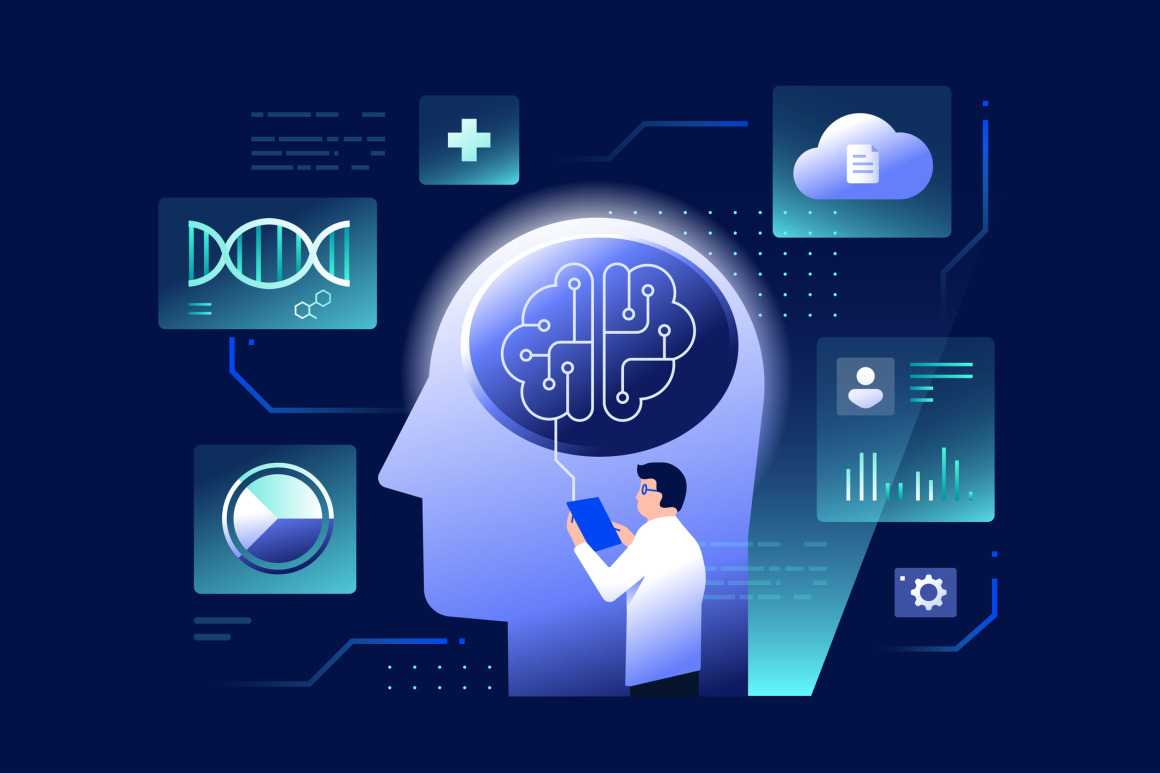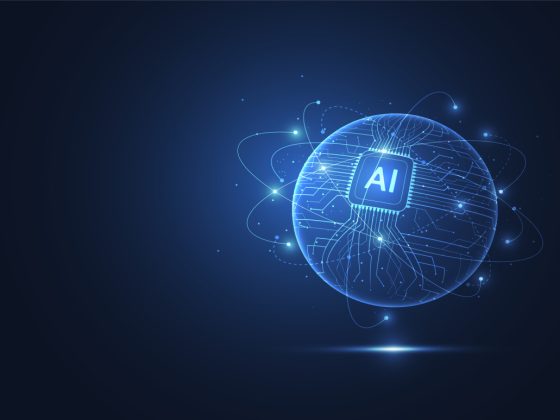The Rise of Agentic AI: How Autonomous Agents Will Transform U.S. Industries in 2025
Agentic AI—autonomous systems capable of making independent decisions—will redefine U.S. industries in 2025 by driving market growth, boosting operational efficiency, and enabling innovative workflows. According to a recent industry forecast, the agentic AI market is set to expand from $5.1 billion in 2024 to $47.1 billion by 2030 Alvarez & Marsal. Meanwhile, Gartner identifies agentic AI as the #1 strategic trend for 2025, predicting that most enterprises will embed autonomous workflows into their core applications.

What Is Agentic AI?
Agentic AI refers to systems that not only generate outputs but also plan, initiate, and execute multi‑step tasks with minimal human intervention. These autonomous agents continuously learn from interactions, enabling them to reprioritize goals in real time and collaborate seamlessly with both humans and other agents.
Enterprise Transformation
Operational Efficiency
Companies across finance, HR, and customer service are piloting agentic AI to automate routine tasks— from budgeting projections to benefits administration. Early studies show these pilots can reduce administrative overhead by up to 30 percent, allowing teams to focus on strategic initiatives.
Software Development
A recent Salesforce survey reports that 92 percent of developers believe autonomous agents will become as essential as compilers by year‑end 2025, freeing them from mundane coding chores and elevating their roles to strategic problem‑solvers.
Cybersecurity
With over 30,000 new software vulnerabilities discovered in 2024, organizations are turning to agentic AI for automated threat detection and response. These systems continuously scan code repositories, patch flaws, and adapt defenses faster than traditional firewalls.
Industry‑Specific Impacts
Healthcare
In the health sector, agentic AI agents schedule appointments, monitor patient vitals via wearable data, and flag critical anomalies for clinicians—improving care coordination and reducing administrative burdens.
Supply Chain
Autonomous agents are revolutionizing logistics by managing inventory levels, optimizing routing, and forecasting demand. Real‑time data analysis enables dynamic rerouting of shipments to avoid delays, enhancing resilience in complex supply networks.
Professional Services
The Big Four consulting firms are investing heavily in agentic AI platforms. For example, Deloitte’s Zora AI and EY’s EY.ai Agentic Platform deliver autonomous financial management and tax‑compliance services—ushering in new outcome‑based commercial models.
Adoption Trends and Strategies
From Pilots to Production
Deloitte predicts that 25 percent of organizations using generative AI will run agentic AI proofs of concept in 2025, increasing to 50 percent by 2027—signaling rapid maturation of these technologies.
Governance and Ethics
As autonomy grows, robust oversight is essential. Leading firms follow IBM’s ethical guidelines to establish guardrails—defining transparent decision‑making, data‑privacy protocols, and human‑in‑the‑loop checkpoints.
Regulatory Landscape
The NIST AI Risk Management Framework provides voluntary standards that help organizations align agentic AI deployments with trustworthiness and auditability requirements.
The Road Ahead
By 2029, Gartner forecasts that 80 percent of routine customer‑service issues will be resolved by autonomous agents, and one‑third of enterprise applications will embed agentic workflows—marking a paradigm shift in how work gets done. Organizations that start integrating these agents now will gain a competitive edge as the technology moves from pilot projects into mission‑critical operations.
Looking for opportunities in digital transformation? VeriiPro is here to help!









